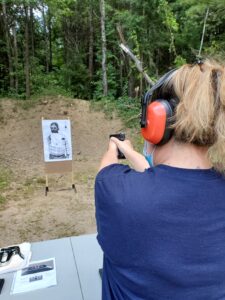C. 123 § 35 Commitment of Alcoholics and Substance Abusers
For the purposes of this section the following terms shall, unless the context clearly requires otherwise, have the following meanings:
“Alcohol use disorder”, the chronic or habitual consumption of alcoholic beverages by a person to the extent that (1) such use substantially injures the person’s health or substantially interferes with the person’s social or economic functioning, or (2) the person has lost the power of self-control over the use of such beverages.
“Facility”, a public or private facility that provides care and treatment for a person with an alcohol or substance use disorder.
“Substance use disorder”, the chronic or habitual consumption or ingestion of controlled substances or intentional inhalation of toxic vapors by a person to the extent that: (i) such use substantially injures the person’s health or substantially interferes with the person’s social or economic functioning; or (ii) the person has lost the power of self-control over the use of such controlled substances or toxic vapors.
Any police officer, physician, spouse, blood relative, guardian or court official may petition in writing any district court or any division of the juvenile court department for an order of commitment of a person whom he has reason to believe has an alcohol or substance use disorder. Upon receipt of a petition for an order of commitment of a person and any sworn statements the court may request from the petitioner, the court shall immediately schedule a hearing on the petition and shall cause a summons and a copy of the application to be served upon the person in the manner provided by section twenty-five of chapter two hundred and seventy-six. In the event of the person’s failure to appear at the time summoned, the court may issue a warrant for the person’s arrest. Upon presentation of such a petition, if there are reasonable grounds to believe that such person will not appear and that any further delay in the proceedings would present an immediate danger to the physical well-being of the respondent, said court may issue a warrant for the apprehension and appearance of such person before it. No arrest shall be made on such warrant unless the person may be presented immediately before a judge of the district court. The person shall have the right to be represented by legal counsel and may present independent expert or other testimony. If the court finds the person indigent, it shall immediately appoint counsel. The court shall order examination by a qualified physician, a qualified psychologist or a qualified social worker.
If, after a hearing which shall include expert testimony and may include other evidence, the court finds that such person is an individual with an alcohol or substance use disorder and there is a likelihood of serious harm as a result of the person’s alcohol or substance use disorder, the court may order such person to be committed for a period not to exceed 90 days to a facility designated by the department of public health, followed by the availability of case management services provided by the department of public health for up to 1 year; provided, that a review of the necessity of the commitment shall take place by the superintendent on days 30, 45, 60 and 75 as long as the commitment continues. A person so committed may be released prior to the expiration of the period of commitment upon written determination by the superintendent of the facility that release of that person will not result in a likelihood of serious harm. Such commitment shall be for the purpose of inpatient care for the treatment of an alcohol or substance use disorder in a facility licensed or approved by the department of public health or the department of mental health. Subsequent to the issuance of a commitment order, the superintendent of a facility may authorize the transfer of a patient to a different facility for continuing treatment; provided, that the superintendent shall provide notification of the transfer to the committing court.
If you get committed by other parties you will be a prohibited person from owning a firearm. If you voluntarily put yourself in a facility then you will NOT be a prohibited person.
Hope this clears it up.
Stay Safe

